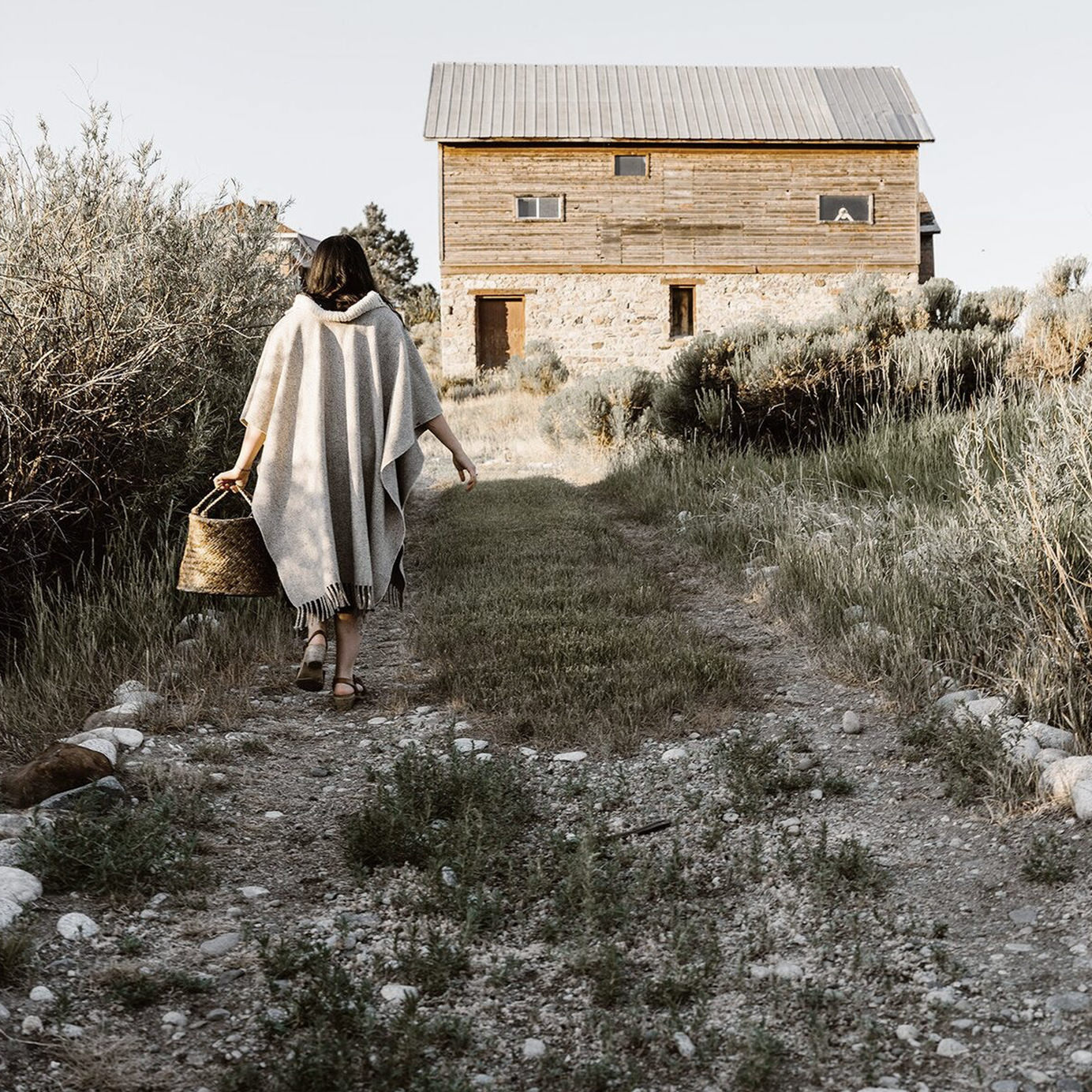Anyone who’s been to a bar in the last 10 years knows that the craft cocktail movement has bequeathed an obsession with all things artisanal. Bitters, shrubs, and infused syrups have gone from unusual additions to must-have ingredients with cult followings.
At the forefront is Dram Apothecary, a Colorado company that produces craft bitters, syrups, teas, and switchels (vinegar-based restoratives, popular in Victorian times). All are cocktail ingredients for the farm-to-glass era.
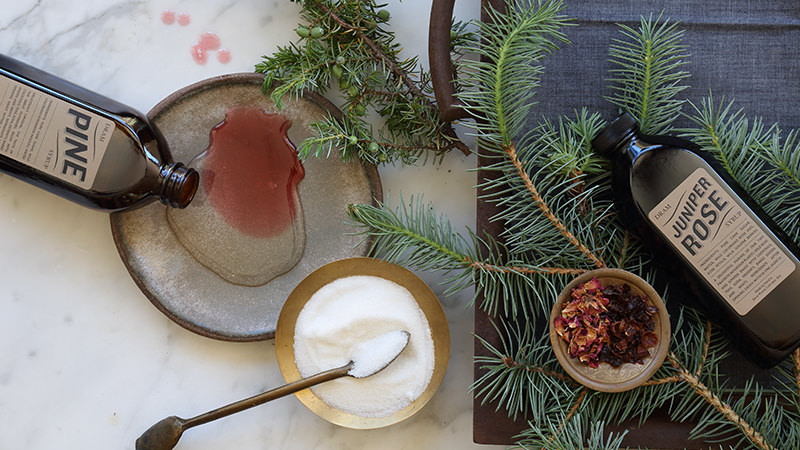
Last month, Dram Pine Syrup, an infusion made with pine needles foraged from Colorado forests, was honored at Alice Waters’ Good Food Awards. Founded by the pioneering chef and activist Nell Newman, of Newman’s Own Organics, the Good Food Awards highlight organic products made without preservatives, additives, flavorings, colorings, or GMOs.
“Our Pine Syrup was one of the things we liked best, we wanted to create something we could forage year-round, instead of depending on seasonality,” Shae Whitney, Dram founder and proprietress, says. A Colorado native and former bartender, Whitney created Dram in 2011 to combine her love of the outdoors, scholarly passions (food science, ecological agriculture, botany studies), and years spent slinging drinks.
“When we started out, there weren’t really any companies making flavored bitters that didn’t have artificial flavoring in them,” Whitney says. Dram’s line now also includes alcohol-free bitters in flavors like Palo Santo (its smoky flavor pairs well with tequila-based cocktails) and lavender lemon balm. There are also syrups like juniper rose (Whitney recommends it for calming a cough) and ginger switchel, available as a cocktail mixer or packaged soft drink, plus cocktail kits and hand-blended teas.
An avid hiker and forager, Whitney started out collecting plants and bringing them home to see how the different edible elements tasted. At the time she was bartending at vegan-food mecca City O’ City in Denver’s Capitol Hill neighborhood. When she began experimenting with bitters, her workplace was the natural place to test them out. The restaurant’s bar still swears by them today.
“It seems as if there’s a new brand coming out with a national campaign every month, but Dram’s bitters simply speak for themselves,” Aaron Robertson, City O’ City’s lead bartender, says. “When using bitters in a cocktail, you’re using it to enhance the cocktail and to bring various elements together. A lot of craft bitters out there overpower the cocktail and come out too much in the forefront, but Dram bitters bring forth classic notes.”
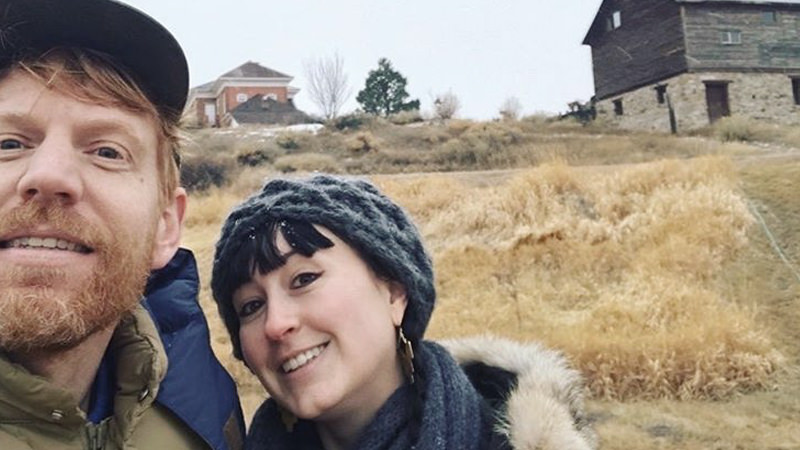
They aren’t just for use in alcoholic cocktails. Whitney believes that the traditional tonics she creates are not only tasty in beverages, but are essential to digestive health.
City O’ City’s general manager, Erin Skahan, agrees. “What we find unique about Dram bitters are the way the flavor combinations lend themselves to beverages in general — cocktails, teas, espresso drinks,” she says. “I love adding a few drops of the Citrus Medica to sparkling water. Shae was a bartender here for years and her style has always spoken to Colorado elements of nature: juniper, sage, and pine.”
Word quickly spread among Whitney’s far-reaching network of curious, creative bartenders. Steve Corman, co-owner of Vena’s Fizz House, a beloved bar in Portland, Maine, is one of many in the industry who immediately got Dram’s allure. Corman’s menu has more than 200 complex cocktails and mocktails, all featuring thoughtfully sourced ingredients. He swears by Dram.
“When I tasted Dram pine, I fell in love,” he says. “And four years later I still love it!” He uses the pine syrup in Vena’s best-selling cocktail, Piney Lemonade. It also serves as a base alongside wormwood bitters, lemon, spiced tonic syrup, alpine herb bitters, and seltzer in Corman’s Lumber Jack Love, and its boozy counterpart, the Lumber Sexual, which includes gin.
Corman believes Dram’s products align with the healthy philosophy of the bar. He uses the cardamom-tinged black bitters in whiskey drinks, like Grandma’s Bourbon, a blend of bourbon, raspberry shrub, Aperol, lemon, Sfumato, Dram’s black bitters, and Vena’s Bitter Armando bitters.
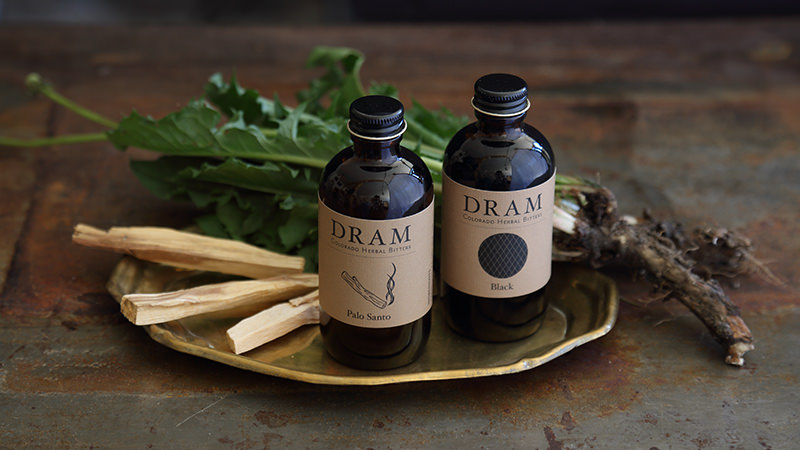
In 2014, Dram’s success led Whitney and her partner, Brady Becker, to seek a larger space. They headed literally for the hills, relocating to Silver Plume, Colorado, a “ghost town” of 200 people some 45 minutes outside Denver.
Whitney and Becker bought and refurbished what had been an 1880s bakery, preserving such original elements as an antique grain scale and the word BREAD, painted on the outside wall. They spent their days foraging the adjacent forest and creating their uniquely flavored potions. Bread Bar was born.
A cocktail lounge and tasting room, Bread Bar was only open on Friday and Saturday nights and seated just 20 guests at a time. It nonetheless quickly became an out-of-the-way drinking destination for Denver’s bartending elite, who began trekking up the I-70 corridor to pay Whitney a visit in person and seek out her wares. Live music and guest bartenders brought crowds, so Whitney and Becker bought and refurbished a neighboring building that had once been a large barn and rented out its rooms.
As idyllic as this all sounds, after a few years, the couple sold Bread Bar to a group of Denver restaurateurs. (It is still in operation.)
“We wanted a place where we could farm, which was impossible in Silver Plume with the climate,” Whitney says. “We wanted to be able to grow our own herbs to put in our products, plus have a property that could accommodate the hospitality side too.”
The couple settled in Salida, Colorado, a scenic destination a few hours from Denver in the Sawatch mountain range. They found a place that was a perfect fit with their hip, quirky brand — the former Chafee County Poor Farm, just two miles outside town. “In the late 1800s, in the days before welfare, every municipality across the country had farms where anyone with a mental illness or an injury or disability would go and live and work the farm in exchange for living there,” Whitney says. “These were called Poor Farms.”
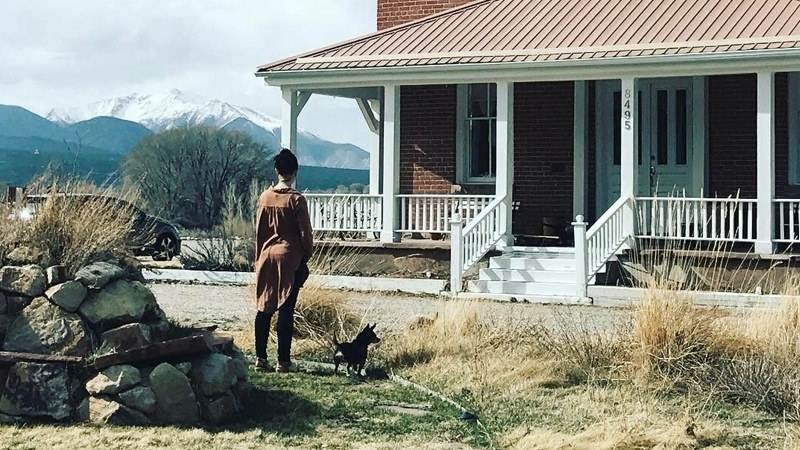
Located on five pristine acres on the Arkansas River, with private access to a state wildlife preserve, the entire Dram Apothecary operation now spans an array of buildings on the National Register of Historic Places. Whitney and Becker live in the former ice house, and they renovated other structures into a hip boutique hotel, featuring seven rooms available to rent on Airbnb. The rooms have an appealingly rustic vibe, with patterned blankets, taxidermy, antiques, and fresh flowers.
What’s special about Whitney and Becker’s business is that it is an actual lifestyle, not just a “lifestyle brand.” As corporate consultants analyze millennial consumer trends for “experiential” travel and eco-friendly ethos, these outdoors enthusiasts created a brand with industry cred and widespread appeal by simply doing what they believe in. Whitney is now developing a product line with plants native to Salida, like pinon pine, elderberry, sage, and juniper. Dram’s story has only just begun.
All photos courtesy of Dram.
